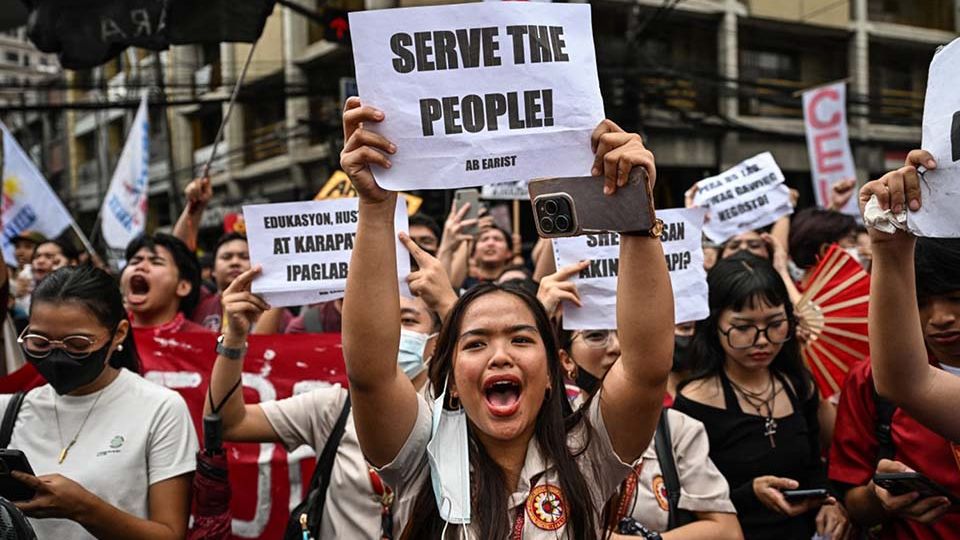October 29, 2025
MANILA – The scandal involving flood control projects becomes bigger every day. With every new revelation comes the realization that corruption in the Philippines is the norm rather than the exception. Behind the repeated promises to serve the “interest of the public” citizens see only hollow words, leaving trust in politicians at an all-time low.
A Stratbase-commissioned survey by Pulse Asia, conducted in September, shows an alarming and sobering picture: 97 percent of Filipinos believe that corruption is widespread, and 85 percent say it has worsened over the past year. Fifty-nine percent agree that it is just “a normal part of politics.” This is normalization’s ugly and dangerous face. Furthermore, 90 percent believe that there is collusion among public officials and private contractors in the misuse of public funds, especially in infrastructure projects.
What is happening is ugly because it takes so much away from the people who barely earn enough for the daily sustenance of their family, and whose lives and homes are put in harm’s way during bad weather and the resultant flooding. It is dangerous because when people accept corruption as normal, democracy becomes just for show. Accountability collapses—if it was ever there in the first place.
Thus, in the span of just a few months, coinciding with the time President Marcos first delivered his “mahiya naman kayo” State of the Nation Address and the subsequent probes and revelations, corruption has jumped to become the second-biggest issue of concern for Filipinos, next only to the prices of goods. From just 24 percent of respondents citing it as an urgent national concern, now 51 percent say so, with corruption overtaking even the gut issues of jobs and poverty.
And rightly so. This surge reflects not just moral outrage, but the sense that corruption worsens inflation, weakens services, and consigns the poor to even greater poverty.
In addressing corruption, the people’s sentiments on the government’s efforts are dismal: just 17 percent approve of how the government is fighting graft, while a staggering 69 percent disapprove. What this tells us is that the people do not believe the government is doing enough to change deeply entrenched and widely practiced corruption among the ranks. A 19-point percentage jump compared to June also tells us that recent events have caused people to feel this strongly. The administration’s anticorruption narrative is no longer credible to most Filipinos, who perceive the system as self-protective and selective.
It only follows that when the nation is outraged, its trust and approval of top officials also suffer a blow. Mr. Marcos’ approval rating fell to 33 percent, while Vice President Sara Duterte’s approval slipped to 37 percent. Their trust ratings also declined, reflecting discontent with the state of governance.
Some 81 percent of respondents said they have little to no trust in the Department of Public Works and Highways. Even the Senate (37 percent) and Ombudsman (39 percent) received only moderate trust, reflecting an overall institutional credibility crisis.
The same surveys show that people are now trusting other institutions, specifically the media (51 percent) and nongovernment organizations (50 percent).
These survey results lay down an unequivocal message: the people are disgusted with corruption and their officials’ behavior and hypocrisy. And in their demand for transparency and accountability, what is being done is barely adequate to even scratch the surface of the crisis. As corruption worsens and government performance falters, Filipinos lose confidence in their leaders.
This crisis of trust gripping the nation has profound implications.
The decrease in trust suggests that citizens no longer see the government leadership as credible or responsive to their most pressing needs, including high prices of basic commodities, low wages, and persistent corruption. Increasingly, people are becoming aware that their hard-earned taxpayer money is being pocketed by dishonest government officials and used to fund lavish lifestyles.
What are Filipinos doing about their disgust and desperation? They are expressing them on social media. They are taking it to the streets. Students have been staging walkouts and there have been rallies, big and small alike, in many locations and by many groups.
How these sentiments will evolve in the following years will translate to votes in the next elections.
The people are demanding to see something drastic, substantial, sincere, and specific. Full transparency and accountability in procurement and performance. Greater power for independent oversight bodies. Institutionalized whistleblower protection and citizen monitoring mechanisms. Greater political accountability for criminal acts and ethical breaches that betray public trust.
The logical question is: What is the government going to do about it, when it appears that its current efforts are not enough?


